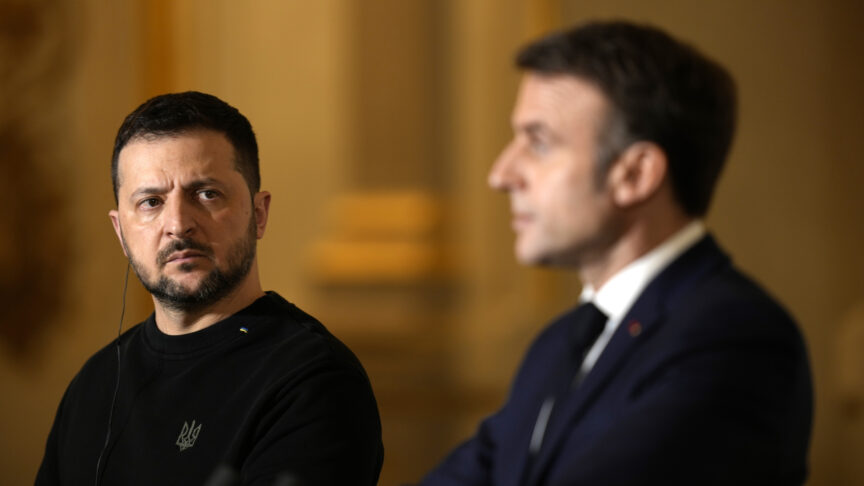Minsk, the end-game
Neither Ukraine nor the West can leave the framework of the Minsk agreement, even if they know that it is not working at all.
The German news coverage of the talks between the Ukrainian President Petro Poroshenko, the French President Francois Hollande and the German chancellor Angela Merkel in Berlin on 24 August revealed a certain amount of surrealism. The Minsk implementation accord was said to be the only way ahead, despite the fact that Russia refuses to comply with it, and progress was anticipated in all kinds of areas: the local elections, the OSCE monitoring, arms withdrawal and the ceasefire. The empirical evidence rather suggests the contrary.
Recently the fighting in Eastern Ukraine has flared up again. Russia has regrouped, re-trained, resupplied, and reinforced its forces since their less successful actions in May 2015, and incidents have again intensified. Not surprisingly, most of these incidents were instigated by the Russian-controlled rebels.
The supervision by the OSCE is far from complete. Monitors are not allowed to move freely in the separatist areas, nor to move beyond previously agreed paths, to inspect facilities, or to move out at night. Vehicles get torched, and drones jammed. Because Russia is not an official party to the conflict, Russian officers patrol as OSCE observers on the Ukrainian side and this is also why some Ukrainian officers deny them access.
As nobody can actually supervise or verify the withdrawal of heavy arms on the Russian side, it becomes a tricky issue for Ukraine too. At Marinka, in the course of a single night the Russian side managed to bring heavy artillery, armor and mechanized infantry to the line of departure whilst the OSCE observers slept in their hotel rooms. If Ukrainian troops withdrew heavy weapons from exposed positions, they might find themselves in a very uncomfortable situation soon after.
The next tricky issue is elections. For the time being, the rebels want to conduct them according to their own rules, banning all Ukrainian mainstream parties from competing, and with their own administrative resources – which means they will be rigged. Nobody in Kyiv has the illusion that open and fair elections would propel a pro-Ukrainian politician to power in Donbas. But a truly elected Opposition Block candidate or Akhmetov-affiliate would still be a much more sincere and trustworthy counterpart than some murky nationalist enthroned by the GRU.
So why then are the German and French governments expecting progress in these fields, despite leading experts cautioning against the consequences? And if a successful implementation of Minsk II primarily depends on Russia’s willingness to comply with it, why then was Putin not invited to the meeting in Berlin? Why does the West not increase pressure on Russia? Or is this meeting the continuation of the clumsy policy to put pressure on Kyiv to simulate progress towards the implementation of Minsk II, so that none of the European leaders has to publicly acknowledge that Minsk is effectively dead?
The original press statement of the three leaders was much more nuanced than the newspaper-reports. It was still a random enumeration of different topics that Russia wants Ukraine and/or the West to act upon. But the leaders, and especially Merkel, avoided putting demands for unilateral implementation by Kyiv on the list.
So the purpose of the meeting seems to have been consultation on how to proceed. And such consultations are needed indeed. As Poroshenko rightfully pointed out, Russian troops both in the Donbas and across the Russian border, are ready to strike. Provocations have been going on for weeks. On 17 August, Russian Foreign Minister Sergei Lavrov accused Kyiv of “preparing for a new offensive”. This essentially means that Russia is looking for a pretext for a new offensive.
Russia has not achieved any of its objectives in Ukraine. The government in Kyiv has not fallen. Western support for Ukraine is still in place. Although Russia might hope that Ukraine’s resistance might fade in the long run, in line with its economy, the idea that the war would erode Ukraine’s economy quicker than the Russian no longer seems correct. With ever-declining oil prices and an economic slump in China, Russia’s strategy of becoming China’s resource-provider to sustain the confrontation with the West is in doubt. To end the war quickly on Moscow’s terms, Russia needs a renewed military offensive that – in a comparable way to the one in Georgia in 2008 – not only beats Ukraine militarily, but also isolates Kyiv from its Western support. The accusation that Kyiv is not sticking to the Minsk agreement would be essential to Russia’s propaganda stream.
Hence, neither Ukraine nor the West can leave the framework of the Minsk agreement, even if they know that it is not working at all. In the absence of Russian compliance, with an aggressive Russian propaganda initiative to incriminate Ukraine, strategic communication between the Western allies on how to proceed and what red lines to draw is essential. Poroshenko needs to balance different interests: to avoid a major escalation, but to not sell out Ukraine’s sovereignty; to keep Western support intact, but not to commit himself to goals he cannot deliver. And the European leaders need to watch out for the many traps laid by Moscow. Only time will tell if they will be successful.
The European Council on Foreign Relations does not take collective positions. ECFR publications only represent the views of their individual authors.


